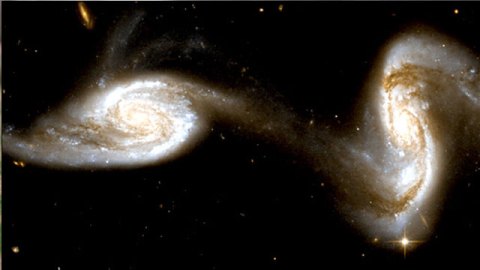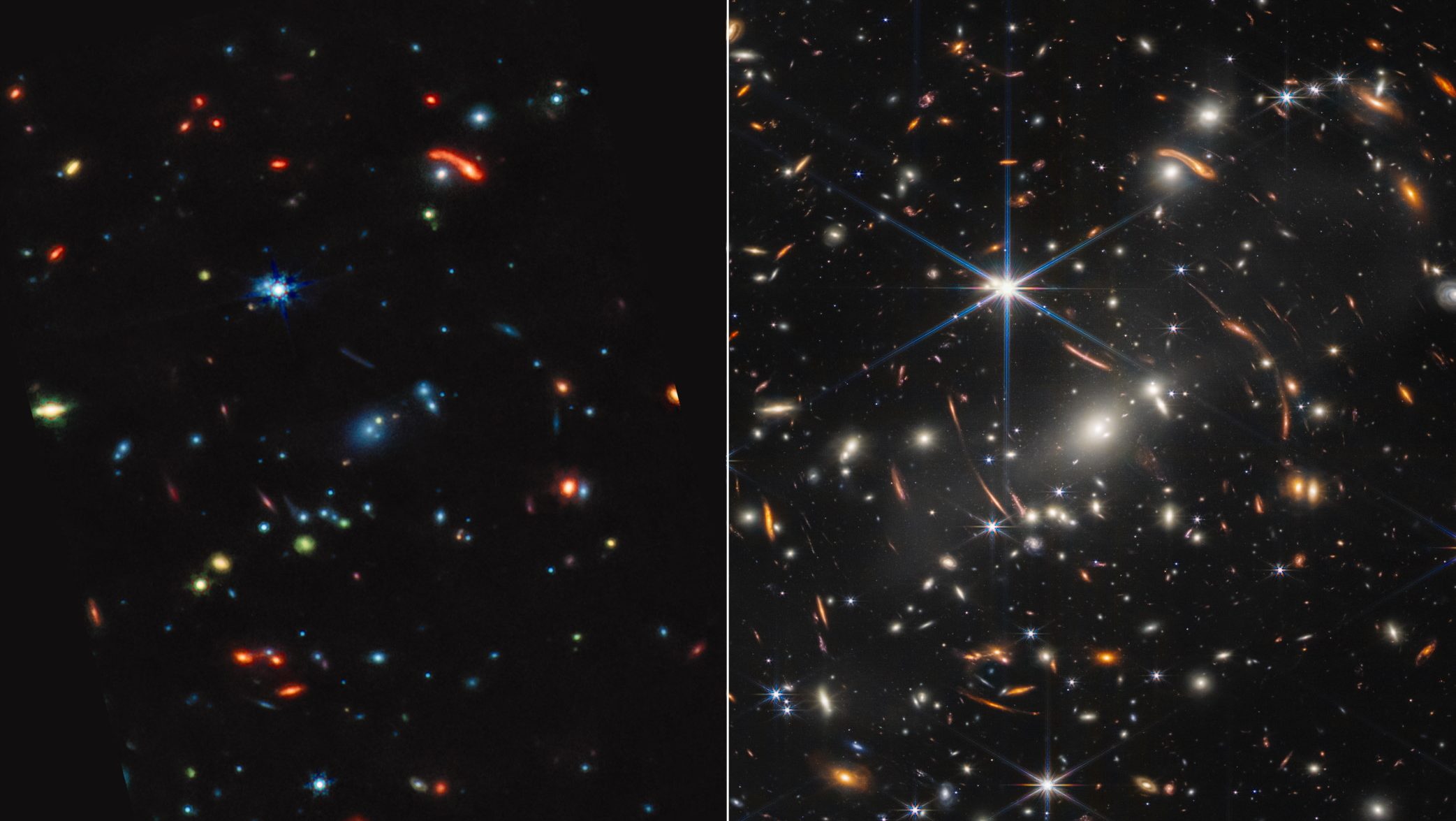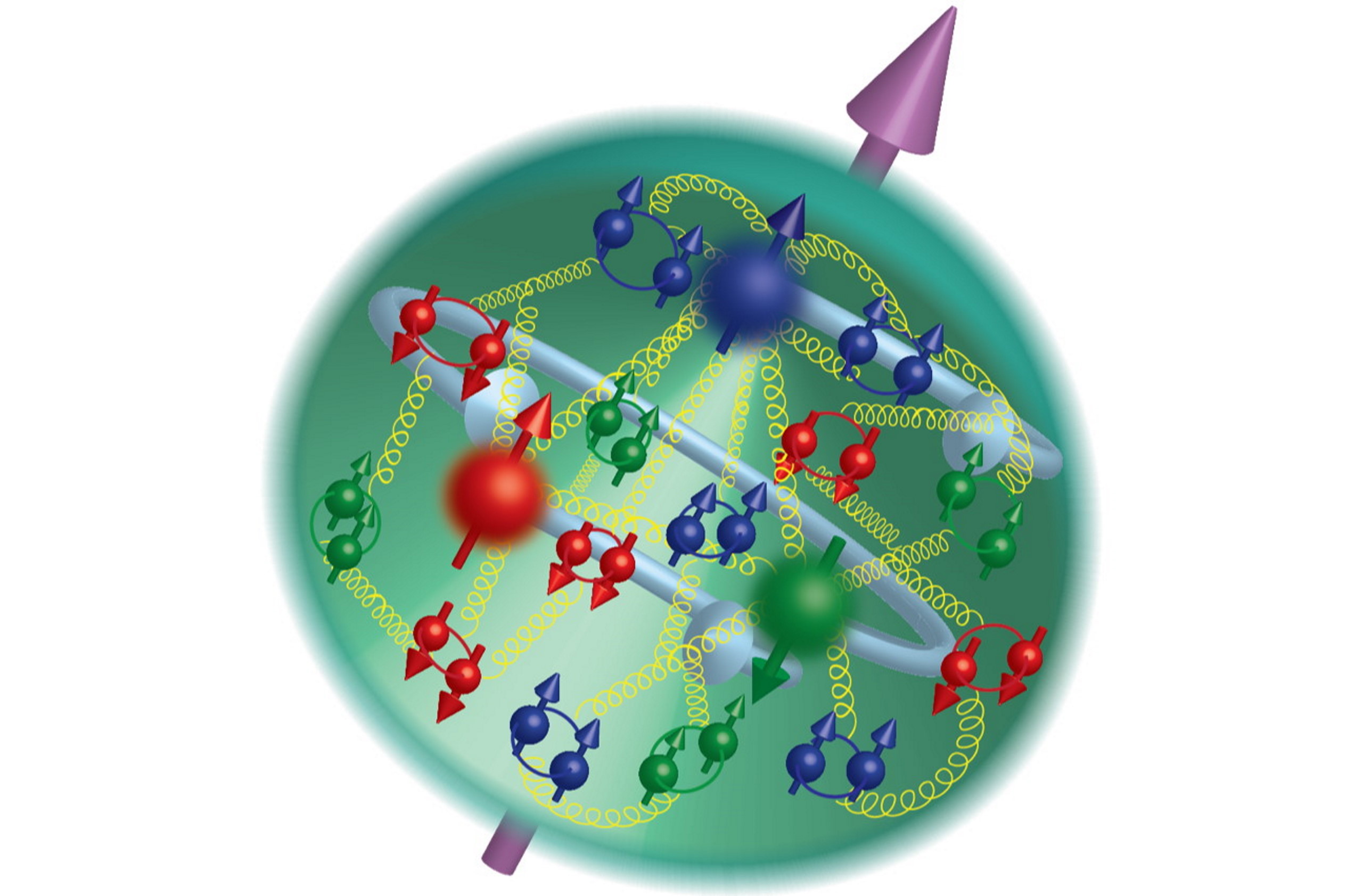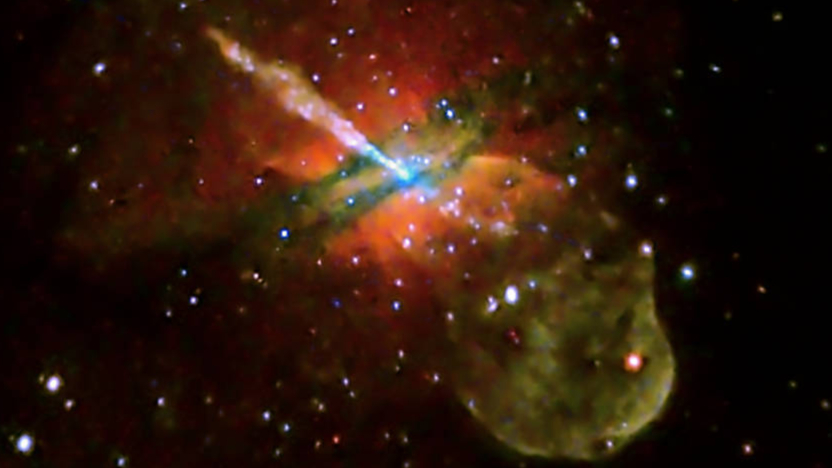Colliding Galaxies in a Expanding Universe?

Every Wednesday, Michio Kaku will be answering reader questions about physics and futuristic science. If you have a question for Dr. Kaku, just post it in the comments section below and check back on Wednesdays to see if he answers it.
Today, Dr. Kaku addresses a question posed by Jonathan Nielsen:
Scientists theorize that the universe is expanding because everything is getting further away from everything else. How then would they explain galaxies colliding with one another?
Dr. Kaku: Yes, the universe is expanding but it is still possible that galaxies collide. This is because galaxies which are very close together attract each other gravitationally, counteracting the repulsive force of the expanding universe.
It is believed that the force of repulsion expanding the universe is due to dark energy, i.e. the energy of the vacuum, which is anti-gravitational. This is the force which is pushing the galaxies apart. However, if galaxies are close together, their local gravity can overcome this repulsion. In fact, it is believed that elliptical galaxies are the result of the collision of many smaller galaxies. So galaxies cannibalize each other all the time, and in the process create larger elliptical galaxies. This means our own Milky Way galaxy might be on a collision course with its nearest neighbor, Andromeda. At the center of Andromeda, in fact, we see 2, not 1, black hole type objects. So perhaps Andromeda is “digesting” a galaxy which was previously absorbed by it. And perhaps, billions of years into the future, our own black hole at the center of our galaxy might wind up inside the core of a new galaxy created by the collision of the Milky Way and Andromeda.





